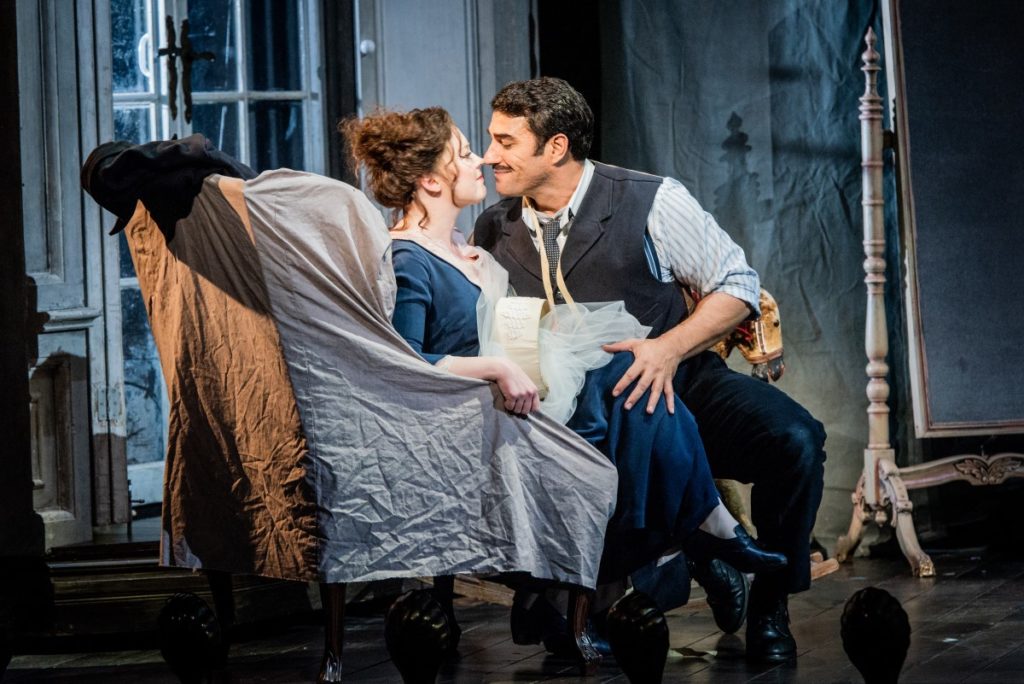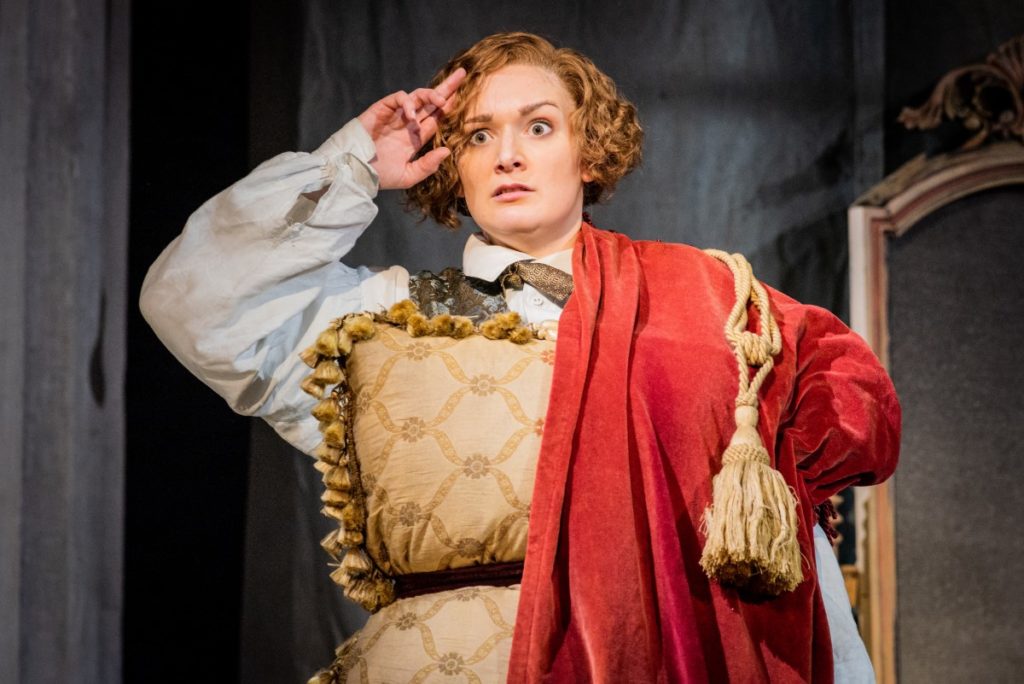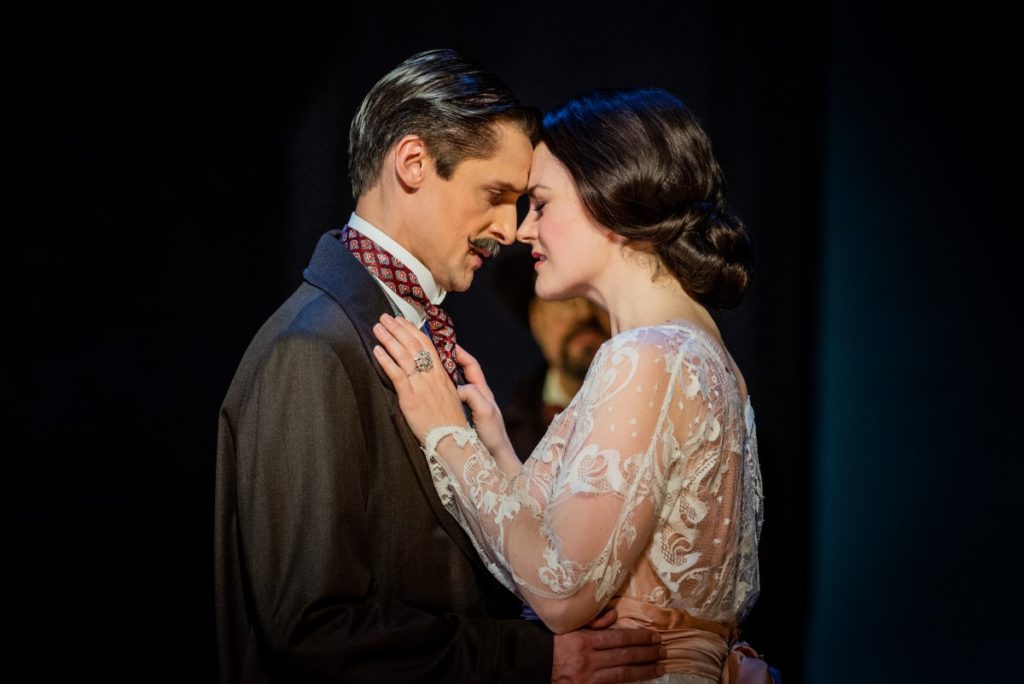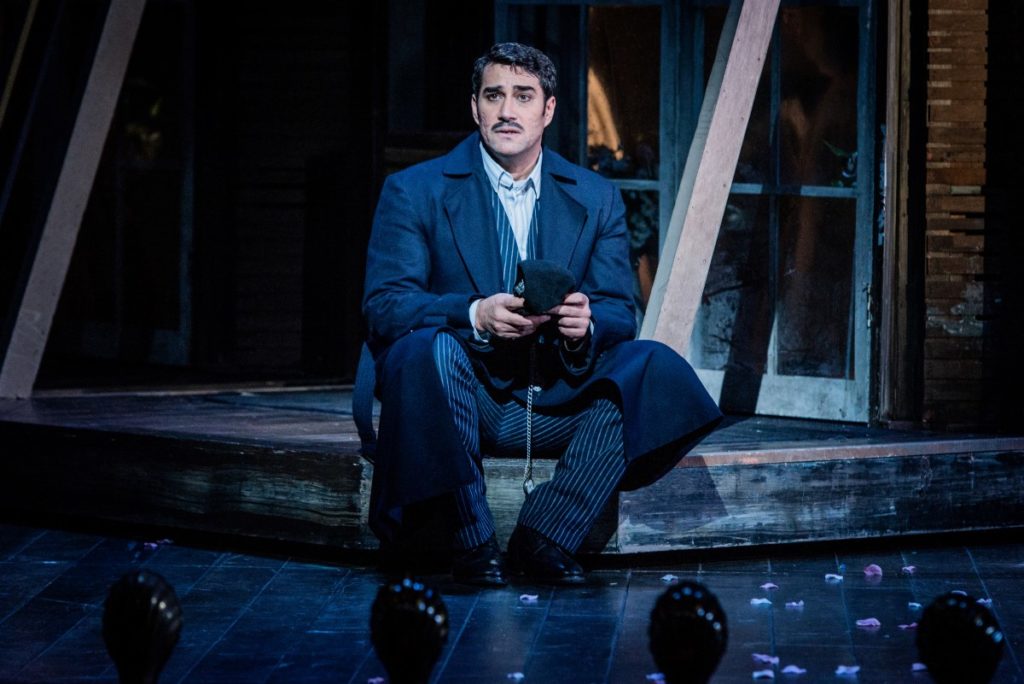
Opera North in The Marriage Of Figaro, Leeds Grand Theatre, February 1 ****
Further Leeds performances on February 8, 14, 19, 22, 26 and 29, then on tour . More details at operanorth.co.uk. Leeds box office: 0844 848 2700 or at leedsgrandtheatre.com
IT is strange how operatic revivals can vary so much from their originals, even when the same director is on hand to oversee them. Jo Davies’s production of Mozart’s opera buffa dates from January 2015. That is before the Me Too movement really took off in October 2017, when the treatment of women in Hollywood began to come under the microscope.
Its repercussions on this show are fascinating. The two leading men, Count Almaviva and Figaro himself, are by far the most charismatic here. That is partly down to the singers involved. But it also reflects the relative hardness of their ladies, the Countess and Susanna.
These men are having their very manhood challenged, even as they attempt their various conquests. It could help to explain why Quirijn de Lang’s relentlessly dim-witted Count (though the singer himself is clearly quite the opposite) comes across as a failed Don Giovanni, never quite achieving those desired notches on his cane. The man is libidinous beyond belief. Even at the end you wonder how long he can possibly remain faithful to his wife. He nevertheless sings with plenty of self-belief.

The New Zealand baritone Phillip Rhodes relaxes into the title role immediately, despite taking it on for the first time. The part could have been made for him. His Figaro retains unclouded optimism in the face of every setback, helped by warm, clear tone and a pair of eyebrows that crinkle with mirth at every excuse.
Opposite him, Fflur Wyn, also new to her role as Susanna, is a calculating creature – the gardener Antonio’s social-climbing niece – rather than a playful minx. Her soprano is light and clean, her diction less so. Nor is clarity Máire Flavin’s strong point as the Countess. Her first aria was too tense to excite sympathy, her second showed what might have been, with fluent control. But she moves beautifully and always has the moral high ground over her wayward husband.
The lower orders are well represented. It comes as no surprise to discover that Heather Lowe, the tousle-haired Cherubino, is a trained dancer. She is exceptionally nimble as well as vocally adept, not least as girl-plays-boy-playing girl.
Jonathan Best makes a diffident old fogey of Bartolo, well partnered by Gaynor Keeble’s earthy Marcellina. Joseph Shovelton is back with his oily Basilio, as is Jeremy Peaker’s rubicund Antonio. Alexandra Oomens is the peppy Barbarina. Even Warren Gillespie’s Curzio makes a mark, here as a censer-swinging priest. Real incense too.

Antony Hermus makes his first appearance in the pit since being appointed Principal Guest Conductor. He is a mixed blessing. His rigid, hyperactive baton ensures taut ensemble, but allows his woodwinds little flexibility; the strength of his accents regularly swamps the singers’ words in ensemble. On the other hand, conducting from the harpsichord, his recitatives flow idiomatically.
Leslie Travers’s mobile set shows both the downstairs and the upstairs of this society, the former doubling as the outside of the house for the garden scene. Peeling wallpaper and rickety staircases speak of genteel poverty. Gabrielle Dalton’s socially-layered costumes could be from almost any era.
In the wake of Me Too, we should expect certain aspects of the comedy to be soft-pedalled. But there is plenty of amusement at the expense of the men. And that is as it should be.

Review by Martin Dreyer
